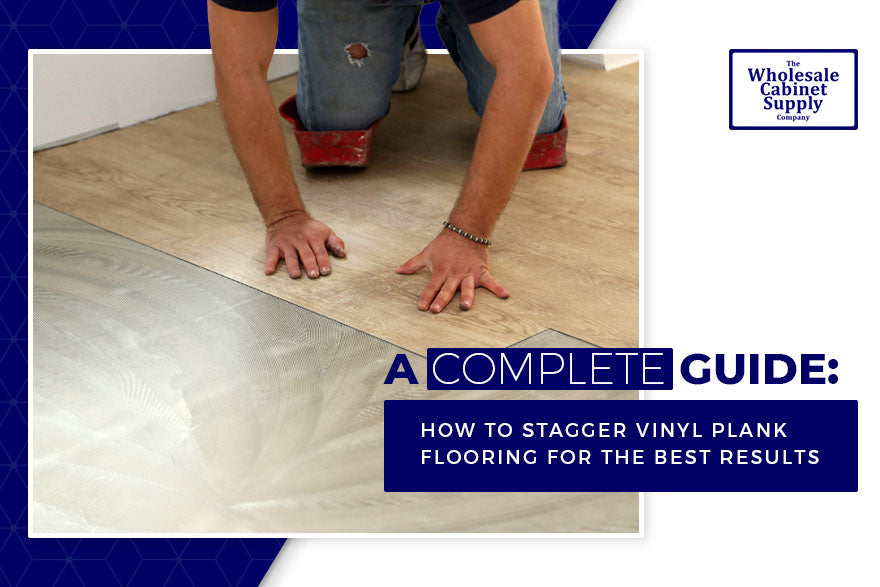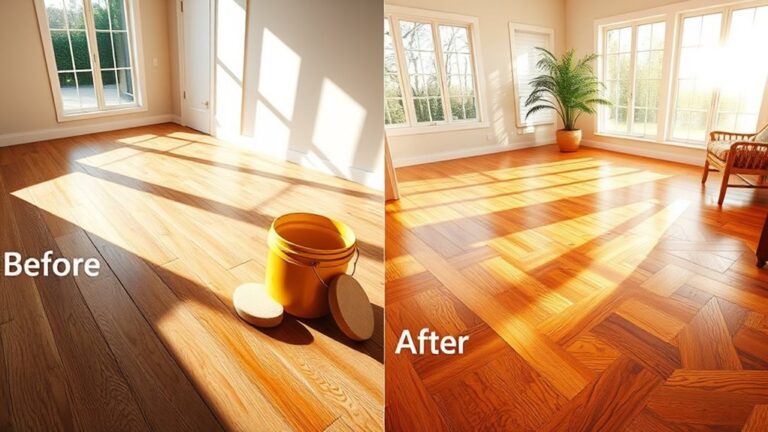Vinyl plank flooring can expand due to changes in temperature and humidity. This expansion can cause the planks to buckle or shift if not properly installed or acclimated beforehand.
To prevent this, it is important to follow the manufacturer’s instructions for installation and acclimation, and to leave a small gap around the perimeter of the room to allow for expansion. Additionally, using a quality underlayment can help absorb any movement and provide a stable foundation.
Understanding how vinyl plank flooring expands is crucial for a successful installation and ensuring the longevity of the flooring.
Understanding The Properties Of Vinyl Plank Flooring
When it comes to vinyl plank flooring, it is important to understand its properties. One of the key factors that users often consider is the durability and longevity of this type of flooring. Vinyl plank flooring is renowned for its exceptional durability, making it a popular choice for both residential and commercial spaces. It is designed to withstand heavy foot traffic, making it ideal for high-traffic areas such as hallways and entryways. Additionally, vinyl plank flooring is known for its resistance to moisture, making it suitable for kitchens, bathrooms, and other areas prone to water exposure.
Another advantage of vinyl plank flooring is its dimensional stability. This means that it is less likely to expand or contract in response to changes in temperature and humidity. This property is particularly important in regions with fluctuating climate conditions. The ability of vinyl plank flooring to maintain its shape and size helps to prevent any unsightly gaps or buckling that can occur with other types of flooring materials.
Factors That Contribute To Vinyl Plank Flooring Expansion
Vinyl plank flooring is a popular choice for homeowners due to its durability, affordability, and easy installation. However, it is important to understand that vinyl plank flooring can expand under certain conditions.
One of the factors that contribute to vinyl plank flooring expansion is temperature and humidity. Extreme temperature changes and high humidity levels can cause the planks to expand and contract, resulting in gaps or buckling.
Another crucial factor is subfloor preparation. Before installing vinyl plank flooring, it is crucial to ensure that the subfloor is level and free from any moisture or unevenness. Failure to properly prepare the subfloor can lead to issues with expansion.
Additionally, the installation techniques used can also impact the expansion of vinyl plank flooring. It is essential to follow manufacturer guidelines and recommendations for installation to minimize the risk of expansion.
Addressing Vinyl Plank Flooring Expansion Concerns
One common concern when it comes to vinyl plank flooring is whether it expands. Addressing these concerns is important to ensure proper installation and long-term durability. The first consideration is the expansion gap requirements. Vinyl plank flooring needs a small gap between the flooring and the wall or other surfaces to allow for expansion and contraction due to changes in temperature and humidity.
Another important factor is the acclimation of the flooring material. It is recommended to acclimate the vinyl planks to the room’s conditions before installation. This involves letting the planks sit in the room for a certain period of time to allow them to adjust to the temperature and humidity levels.
Proper installation methods also play a crucial role in addressing expansion concerns. Following the manufacturer’s guidelines and using appropriate adhesives or installation techniques can help minimize potential expansion and contraction issues.
Overview Of Vinyl Plank Expansion Solutions
Vinyl plank flooring is a popular choice for homeowners due to its durability, affordability, and versatility. However, one common concern that arises is whether vinyl plank flooring expands. Luckily, there are several solutions to address expansion issues.
One solution is the use of expansion joints and transition strips. These are designed to allow the flooring to expand and contract without causing any damage. The expansion joints are typically used at doorways or between rooms, while transition strips are installed between different types of flooring or in areas where the vinyl plank meets a vertical surface.
Another solution is floating installation. This method involves installing the vinyl plank flooring without any adhesive. Instead, the planks are locked together and float over the subfloor. This allows for natural expansion and contraction without any restrictions.
Proper underlayment is also important in preventing expansion issues. A good underlayment provides cushioning, insulation, and moisture protection, reducing the risk of the vinyl plank flooring expanding or contracting excessively.
By considering these expansion solutions, homeowners can enjoy the benefits of vinyl plank flooring without worrying about expansion issues.
Common Misconceptions About Vinyl Plank Flooring Expansion
Vinyl plank flooring is a popular choice for homeowners due to its durability and versatility. However, there are some common misconceptions when it comes to its expansion properties. It is essential to understand and follow the manufacturer’s instructions to prevent any issues in the future.
One common mistake is not thoroughly reading and understanding the manufacturer’s instructions. Each vinyl plank flooring brand may have different recommendations when it comes to installation, acclimation, and expansion. Ignoring or misinterpreting these instructions can lead to problems down the line.
Another misconception is the confusion between expansion and contraction. While vinyl plank flooring can expand and contract with changes in temperature and humidity, it is crucial to differentiate between the two. Expansion gaps should be properly installed during installation to allow for natural movement.
Lastly, inadequate preparation and maintenance can contribute to issues with vinyl plank flooring expansion. Properly preparing the subfloor, ensuring it is clean, smooth, and level, can help prevent problems. Regular maintenance, such as avoiding excessive moisture, can also help maintain the flooring’s stability.

Benefits Of Vinyl Plank Flooring Expansion
Vinyl plank flooring is a popular choice for many homeowners due to its durability, affordability, and easy installation. One of the key benefits of vinyl plank flooring is its ability to expand and contract. This crucial feature minimizes the risk of damage to the flooring over time.
By allowing for expansion and contraction, vinyl plank flooring is better able to withstand changes in temperature and humidity. This is especially important in areas of the home like kitchens, bathrooms, and basements that are prone to moisture and temperature fluctuations. Without proper expansion and contraction capabilities, flooring can buckle, warp, or crack, leading to costly repairs or replacement.
Additionally, vinyl plank flooring with expansion and contraction properties ensures long-term installation integrity. When installed properly, the flooring can flex and adjust without compromising its structural integrity. This helps to prevent gaps between planks and maintains a seamless and visually appealing appearance.
Furthermore, vinyl plank flooring expansion can also enhance indoor air quality. Vinyl flooring is often made from materials that are low in volatile organic compounds (VOCs), which can contribute to poor air quality. The ability of vinyl plank flooring to expand and contract properly helps to prevent the trapping of moisture or other substances below the surface, reducing the risk of mold or mildew growth.
| Benefits of Vinyl Plank Flooring Expansion | ||
|---|---|---|
| Minimizing Flooring Damage | Ensuring Long-Term Installation Integrity | Enhancing Indoor Air Quality |
Frequently Asked Questions On Does Vinyl Plank Flooring Expand
Does Vinyl Plank Flooring Need Room To Expand?
Vinyl plank flooring needs room to expand.
Does Vinyl Flooring Actually Expand?
Yes, vinyl flooring can expand due to changes in temperature, humidity, or improper installation. Expansion can cause buckling or gaps between the boards. It is important to acclimate the flooring before installation and leave proper expansion gaps to allow for movement.
What Are The Disadvantages Of Vinyl Plank Flooring?
Vinyl plank flooring has a few drawbacks. It can be susceptible to scratches and dents. It may not be as durable as other flooring options, and it can sometimes emit a chemical odor after installation. However, advancements in technology have made vinyl planks more resistant to these issues.
Does Vinyl Plank Flooring Swell?
Vinyl plank flooring does not swell.
Conclusion
Vinyl plank flooring may expand due to changes in temperature and moisture levels. It is essential to understand the potential expansion and contraction factors before installation to ensure proper fit and prevent any issues down the line. By following the manufacturer’s guidelines and maintaining a stable environment, you can enjoy the beauty and durability of vinyl plank flooring for years to come.




